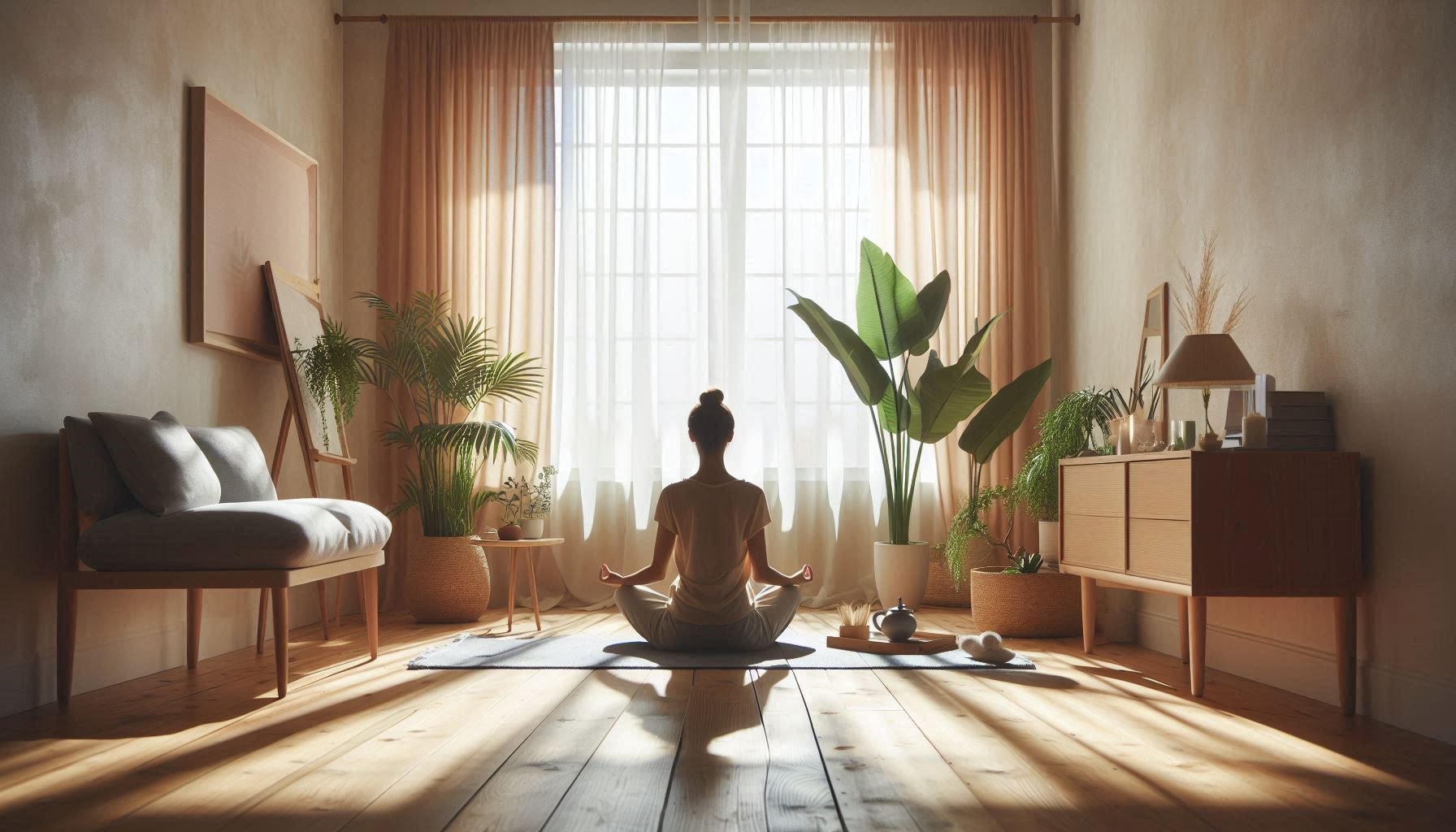In today’s fast-paced world, many people find themselves overwhelmed by the constant barrage of information, tasks, and possessions. The more we accumulate, the more we feel burdened by the clutter in our lives—both physical and mental. Embracing minimalism can be a powerful way to reduce stress and find clarity. By simplifying your environment, your possessions, and even your mindset, you can create a peaceful space that fosters relaxation and reduces anxiety. Here’s how the minimalist philosophy can help you manage stress more effectively.
1. Declutter Your Physical Space
One of the most immediate ways minimalism helps reduce stress is by clearing out physical clutter. A messy or disorganized home can create feelings of anxiety and overwhelm. When your environment is filled with items that are unnecessary or no longer serve a purpose, it can increase feelings of chaos. Minimalism encourages you to keep only the items that are essential or bring you joy. A clean, organized space promotes calm and relaxation, reducing the mental strain caused by clutter.
2. Simplify Your Schedule
In a world where everyone is busy, it’s easy to overcommit and fill your days with too many activities. Minimalism encourages you to prioritize your time and energy, focusing on what truly matters. By simplifying your schedule and eliminating unnecessary tasks, you can reduce the pressure of trying to do it all. Learning to say no and setting boundaries will help you protect your time and create space for rest and self-care.
3. Reduce Decision Fatigue
Every day, we make countless decisions, from what to wear to what to eat. The more choices we have, the more mental energy is required to make them. This can lead to decision fatigue, a state of mental exhaustion caused by making too many decisions. Minimalism helps reduce decision fatigue by simplifying your options. With fewer possessions, you don’t need to waste time deciding what to wear, what to cook, or what to buy. A minimalist approach to daily decisions frees up mental energy, allowing you to focus on what’s truly important.
4. Let Go of Perfectionism
Many people experience stress due to the pressure to be perfect in every aspect of their lives. Minimalism helps shift the focus from perfection to practicality. It encourages you to embrace imperfection and let go of unrealistic expectations. By focusing on what truly adds value to your life, you can release the need to be flawless and start living with more authenticity. This mindset shift helps alleviate stress by removing the pressure of trying to be everything to everyone.
5. Focus on Experiences, Not Possessions
One of the core principles of minimalism is the idea that experiences bring more lasting happiness than material possessions. When you stop chasing after the next item or trend, you can focus on creating meaningful experiences that bring you joy and fulfillment. Whether it’s spending time with loved ones, traveling, or pursuing a hobby, shifting your focus from acquiring things to creating memories reduces stress and helps you feel more content in the present moment.
6. Create Space for Self-Reflection
Minimalism encourages introspection and mindfulness. By decluttering your life, you create space for self-reflection, which can help you better understand your thoughts, emotions, and priorities. This self-awareness allows you to make decisions that align with your values, reducing the stress caused by external pressures or conflicting priorities. When you simplify your surroundings, you can also clear your mind and focus on what truly matters to you.
7. Cultivate a Calm and Focused Mindset
Minimalism isn’t just about your physical environment; it’s also about your mindset. By adopting a minimalist philosophy, you can cultivate a calm and focused state of mind. Minimalists tend to prioritize mental clarity and emotional well-being, often practicing mindfulness, meditation, or journaling to stay grounded. This focus on simplicity in both your environment and your mind can help you manage stress by promoting a sense of inner peace and balance.
8. Reduce Financial Stress
Financial stress is a major contributor to overall anxiety for many people. Minimalism can help reduce this stress by encouraging you to live below your means and prioritize financial stability. By purchasing fewer items and focusing on quality over quantity, you can save money and reduce debt. This financial freedom creates peace of mind, as you no longer feel weighed down by unnecessary expenses or the constant need to keep up with others.
9. Simplify Your Relationships
In the minimalist philosophy, simplicity extends to your relationships as well. Reducing the complexity of your social interactions by surrounding yourself with supportive, positive people can have a significant impact on your mental well-being. Minimalism encourages you to nurture meaningful relationships while letting go of toxic or draining connections. This approach creates space for more fulfilling, low-stress relationships that bring joy and comfort.
10. Embrace Mindful Living
Finally, minimalism encourages living mindfully—being present in the moment rather than constantly worrying about the future or dwelling on the past. Mindfulness helps reduce stress by allowing you to focus on what you can control and letting go of things beyond your influence. By living more intentionally and with purpose, you can cultivate a peaceful, stress-free life that prioritizes well-being over busyness.
Conclusion
Adopting the minimalist philosophy can have a profound impact on your mental and emotional health. By decluttering your physical space, simplifying your schedule, reducing decision fatigue, and letting go of perfectionism, you can create a more peaceful and stress-free life. Minimalism is about focusing on what truly matters and eliminating distractions, which in turn allows you to experience more clarity, calmness, and happiness. In a world full of noise and chaos, embracing minimalism offers a path to serenity and balance.
